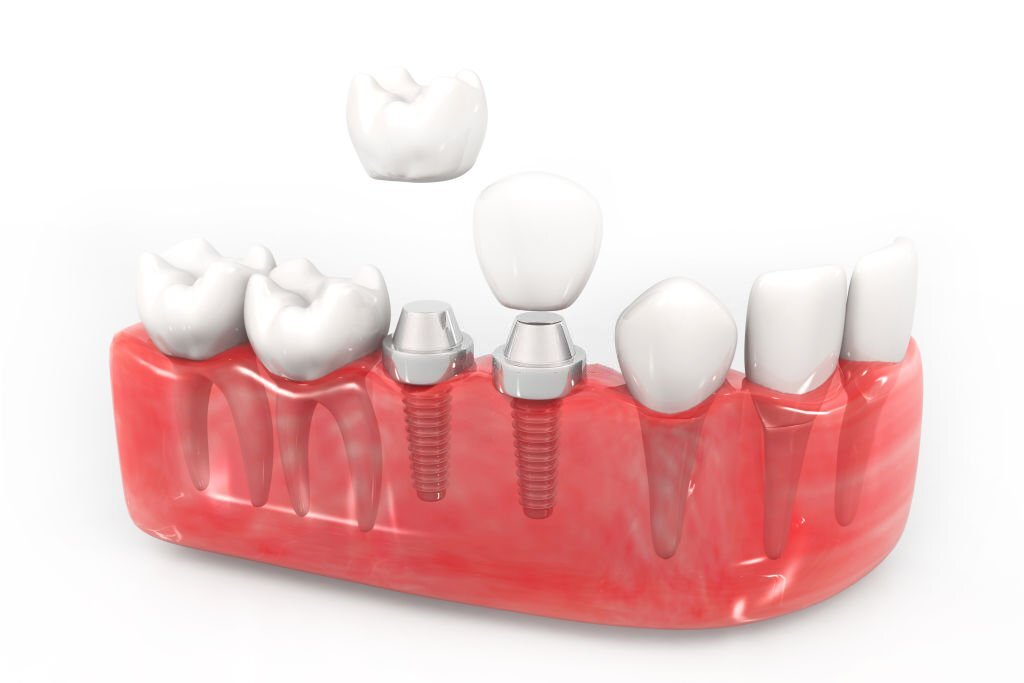Do you feel there is something wrong with your recently-installed dental implant? Then visit your dentist in Taylor, TX immediately to get it removed. Dental implants might fail to bond properly in your teeth. It can be due to allergies, some minor complications, or any other reason.
But how exactly do you know that your dental implant has failed? Well, here are some subtle signs that your dental implant is failing and you need immediate medical attention.
Signs That Your Dental Implant Is Failing
Complications and problems from dental implant surgery can crop up right after your procedure or some years later. For early dental failure, the signs show up within the first 3-4 months.
During the procedure, dentists use sedation dentistry TX to avoid pain. After the sedation wears off, if you feel some discomfort or pain right after surgery, that is entirely normal. It happens to everyone, and your dentist will give you pain medication to control it. However, if the pain and discomfort stay the same even after 5-7 days, you should talk to your dentist.
Here are some additional signs that your dental implant is not adjusting with your teeth.
Early Stage
-
Implant Micro-Movements
If you spot any micro-movements of your implant, it indicates that your dental implant procedure has failed. It can occur if your implant is not stable enough right after the tooth replacement. Usually, your dentist will not insert the artificial tooth in the implant till your implant integrates entirely with your jawbone. However, if there is a time crunch, your surgeon can install the artificial tooth right after. It may seem like a hassle-free option, but it can put a lot of pressure on the implant leading to its failure.
-
Infection
If you have bad oral hygiene, are a heavy smoker, or have an autoimmune disease, you must be very careful after your dental implant surgery. You have a high risk of infection at the implant site. So if you see any redness, swelling, or extreme pain, contact your dentist immediately.
-
Allergic Reaction
If you have any allergic reaction around your implant site, it is a sign that the surgery has failed. The symptoms are tingling sensation, loss of taste, and swelling. If you observe any of these problems, contact your dentist immediately and remove the dental implant.
The allergic reaction may be due to any allergy to metals like titanium or titanium alloy. Your dentist will take out the existing one and another dental implant made from a different metal.
-
Insufficient Bone Support
Your dental implant may come loose if there is not enough bone structure to support the implant. Without the proper bone structure, your implant will be unable to fuse with the jaw.
Later Stage
The symptoms mentioned above are only for early-stage failures. Even though your dental implant looks like a success, for now, it can cause problems years later. Here are some signs you should look out for –
- Any tingling or numbness in your face, gums, lips, and tongue. It may be caused due to tissue or nerve damage.
- If there are any chills, fever, swelling, or increased pain at the dental implant site, your body might be rejecting the implant.
- Your dental implant is placed too close to the upper jaw, thus protruding into your sinus cavity.
- Your dental implant can come loose years later. It can happen if there is any injury surrounding the implant site.
Conclusion
Dental implants can fail for several reasons. But whatever the reason may be, you will be able to spot any of these signs mentioned above to know that something is wrong. So if you observe any problems, head over to our dental clinic immediately. Our dentist will figure out the problem and give you the proper treatment.


